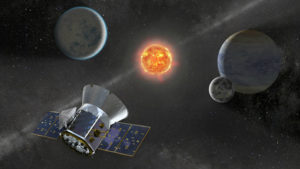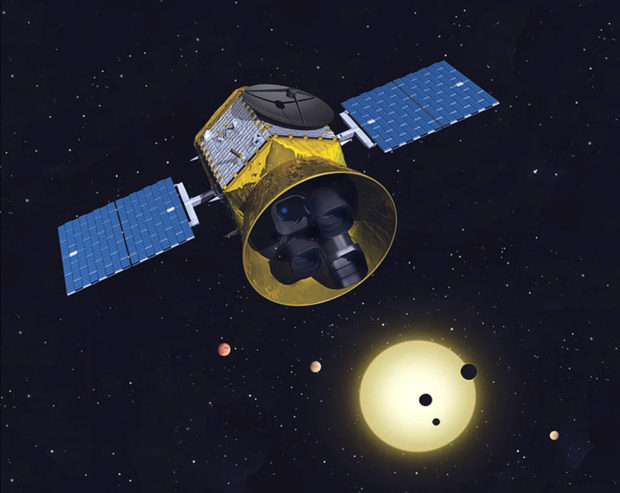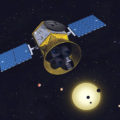The National Aeronautics and Space Administration (NASA) is all set to launch its next planet-hunting spacecraft on Monday, April 16 at 6:32 pm EDT (4.02 am IST, April 17).
The spacecraft is scheduled to be launched on a SpaceX Falcon 9 rocket from Space Launch Complex 40 at Cape Canaveral Air Force Station in Florida.
NASA’s Transiting Exoplanet Survey Satellite (TESS) mission will study thousands of planets outside our solar system, known as exoplanets, orbiting the nearest and brightest stars in our cosmic neighbourhood.
The mission will find exoplanets that periodically block part of the light from their host stars, events called transits.
TESS will survey 200,000 of the brightest stars near the sun to search for transiting exoplanets, giving future researchers a rich set of new targets for more comprehensive follow-up studies, including the potential to assess their capacity to harbor life.
With the help of a gravitational assist from the Moon, the spacecraft will settle into a 13.7-day orbit around Earth, NASA said in an earlier statement.

Sixty days after the launch and following tests of its instruments, the satellite will begin its initial two-year mission. Four wide-field cameras will give Tess a field-of-view that covers 85 percent of our entire sky.
Within this vast visual perspective, the sky has been divided into 26 sectors that Tess will observe one by one.
The first year of observations will map the 13 sectors encompassing the southern sky, and the second year will map the 13 sectors of the northern sky.
The spacecraft will be looking for a phenomenon known as a transit, where a planet passes in front of its star, causing a periodic and regular dip in the star’s brightness.
NASA’s Kepler spacecraft used the same method to spot more than 2,600 confirmed exoplanets, most of them orbiting faint stars 300 to 3,000 light-years away.
So do you like to read such articles , consider liking our page on Facebook here , following us on Twitter here ,or if you love some visual treatment , we make some high quality videos on YouTube as well which you can view here . have a great day :). Visit our homepage HERE for the LATEST SCIENCE NEWS.




